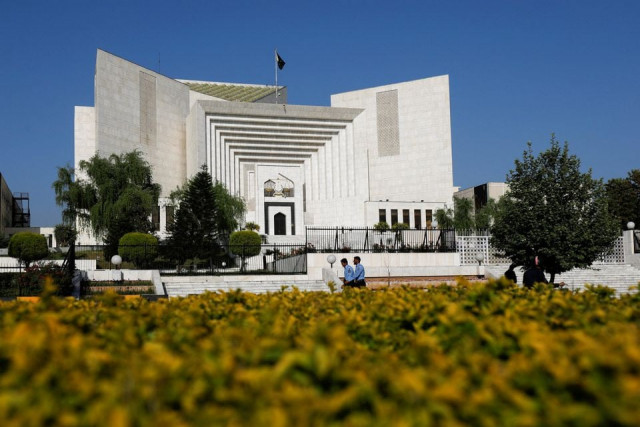Women should be granted bail ‘as a rule’
Justice Shah authors nine-page judgement regarding post-arrest bail

The Supreme Court has ruled that in cases where women are accused of committing a crime, the bail “is to be granted as a rule and refused only as an exception”.
"In cases of women accused, etc., as mentioned in the first proviso to Section 497(1), irrespective of the category of the offence, the bail is to be granted as a rule and refused only as an exception in the same manner as it is granted or refused in offences that do not fall within the prohibitory clause of Section 497(1), CrPC,” says a nine-page judgment authored by Justice Syed Mansoor Ali Shah while hearing post-arrest bail filed by a woman who was accused of murdering her husband.
The judgement reads, “The exceptions that justify the refusal of bail are also well settled by several judgments of the court. They are the likelihood of the accused, if released on bail: (i) to abscond to escape trial; (ii) to tamper with the prosecution evidence or influence the prosecution witnesses to obstruct the course of justice; and (iii) to repeat the offence."
Also read: Prefix ‘honourable' for courts wrong: SC
The two-member bench of the apex court led by Justice Shah has noted that “no doubt, the offence of intentional murder or qatl-i-amd is punishable under Section 302 PPC, [however] alleged [offence] against the petitioner falls within the prohibitory clause of Section 497(1) of the Code of Criminal Procedure 1898 (CrPC) but being a women, the petitioner’s case is covered by the first proviso to Section 497(1) CrPC.”
"The said proviso, as held in Tahira Batool case, makes the power of the court to grant bail in the offences of prohibitory clause of Section 497(1) alleged against an accused under the age of sixteen years, a woman accused and a sick or infirm accused, equal to its power under the first part of Section 497(1) CrPC."
The judgement notes that the court “is not considering the grant of bail to the petitioner under Section 497(2) CrPC, under which the bail is granted to an accused as of right if it appears to the court that there are no reasonable grounds for believing that the accused has committed the offence alleged against him rather there are sufficient grounds for further inquiry into his guilt.”
"For the purpose of deciding the prayer for grant of bail in exercise of the discretionary power of the court under Section 497(1), CrPC, the availability of a sufficient incriminating material to connect the accused with the commission of the offence alleged against him is not a relevant consideration."
"In view of the facts and circumstances of the case, we do not find that there is a likelihood that the petitioner if released on bail, after securing sufficient sureties, would abscond to escape trial, or tamper with the prosecution evidence or influence the prosecution witnesses to obstruct the course of justice, or repeat the offence.
"Her case, thus, does not fall within any of the three well-established exceptions that may have justified refusing bail to her.”
The court however clarified that the concession of bail may be cancelled by the trial court in the exercise of its power under Section 497(5) CrPC if the petitioner misuses it in any manner, including the causing of delay or otherwise hindering the expeditious conclusion of the trial.



















COMMENTS
Comments are moderated and generally will be posted if they are on-topic and not abusive.
For more information, please see our Comments FAQ